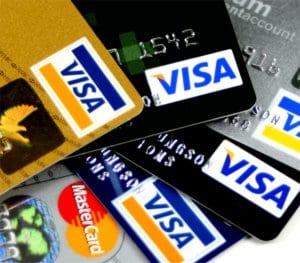Building Credit using Secured Credit Cards
Reviewed by:

Understanding how to boost your credit score with a secured credit line
Good credit is important for your financial stability and long-term success. Unfortunately, if you haven’t used credit before or if you’ve had trouble in the past that has led to a bad credit score, you may encounter some roadblocks as you try to build your way to a better credit score.
Those roadblocks usually come in the form of rejections when you apply for credit cards or loans. The credit issuers won’t extend you credit because you don’t have good enough credit to qualify. So it almost seems like a Catch 22 – you need good credit to get credit, but you can’t get the accounts you need to achieve a better score.
This is where secured credit cards can give you the edge you need. The information below can help you understand how credit works and how you can use it to strategically work towards the better credit score you want and need. If you have questions or you need to address challenges with debt before you start to rebuild your score, we can help. Call Consolidated Credit today at (844)-402-3073 or complete an online application to request a confidential debt and credit evaluation from a credit counsellor, free of charge.
The difference between secured and unsecured credit
A secured credit card is different from the traditional credit lines we usually think of when it comes to credit cards. Having “secured credit” means the debt is backed up by some type of collateral. If you don’t pay back what you borrow, the collateral makes up for the losses for the creditor.
With loans, the collateral for secured debt is usually the property you’re investing in. So the collateral on a mortgage is the home itself and the collateral on your auto loan is the car. Foreclosure and repossession are the risks of nonpayment when it comes to secured loans.
On the other hand, secured credit cards don’t have property attached to the debt. As a result, the “collateral” put down to secure the credit line is usually a cash deposit you make to the creditor.
How secured credit cards work
These are the general steps you can follow to obtain a secured credit card:
- Search a credit issuer’s website or a credit card comparison website for “secured credit cards.”
- Apply for the card with the best terms and services to fit your needs – make sure to pay close attention to fees and interest rates to make sure you get the card that costs the least amount of money to use.
- The credit issuer will request a deposit that can usually be paid directly from your bank account using your bank routing and account numbers.
- In most cases the credit line you get will equal the amount you deposit. In some cases, a few secured credit cards may give you a little extra credit line in addition to the deposit. For instance, you’ll put down $300 but the creditor will extend you a $500 credit line.
- Once you have your account, start making purchases strategically – i.e. only charge what you can afford to pay off each pay cycle so you can pay off the balance in-full every month.
- As you make payments on time and manage your debt responsibly, the creditor may increase your credit line without any additional deposit, but always follow Step 5 and make sure you can pay off what you borrow every month.
- After about 6 months (depending on where you started with your credit score) of on-time payments, you should see an improvement in your credit score – you will either need a credit monitoring service if you want to check or certain credit cards may offer a credit score tracker when you open the account.
- Once you have achieved at least a fair credit score, most creditors will begin to offer and approve you for unsecured credit cards that don’t require a deposit.
- Even if you start using unsecured credit instead, it may be a good idea to keep this secured account open and use it every so often so you can maintain it as your oldest account maintained in good standing – this is a factor in your credit score and closing the account may decrease your score.
- If you choose to close the secured account, the credit issuer will refund your deposit as long as you’ve made all payments on time. If you allow the account to default, you lose your deposit.
Other tips for secured credit cards
While secured credit cards differ depending on the card and credit issuer, the following general rules can help you use the account to your best advantage:
- Be careful with annual fees – these can make certain cards more expensive to use on a yearly basis.
- Opt for low interest – this way, if you ever have a month where you can’t pay off the balance in-full, you don’t end up running up the debt with added interest charges.
- Be wary of secured reward cards – in rare cases you may find a secured credit card with a rewards program included. However, earning rewards while you manage the debt effectively is a more advanced credit strategy. It’s often better left for when you’re more comfortable using credit. Additionally, rewards credit cards tend to have higher interest rates.
- Make sure the issuer reports to all three bureaus – this way you ensure you’re building credit effectively with the credit bureaus that maintain the profiles used by lenders.
- Make sure the deposit is fully refundable – in most cases, you should be able to pay off your balance and receive your full deposit back.
- Opt for credit tracking if it’s available – some issuers offer free credit score tracking or credit monitoring when you open an account. This can give you a big edge as you work to build credit.
Featured Video:
How to Improve Your Credit Score
Learn what factors directly effect your score so you can work towards raising your score
If you are struggling, you need to solve your immediate financial issues before you make a plan to move forward.





